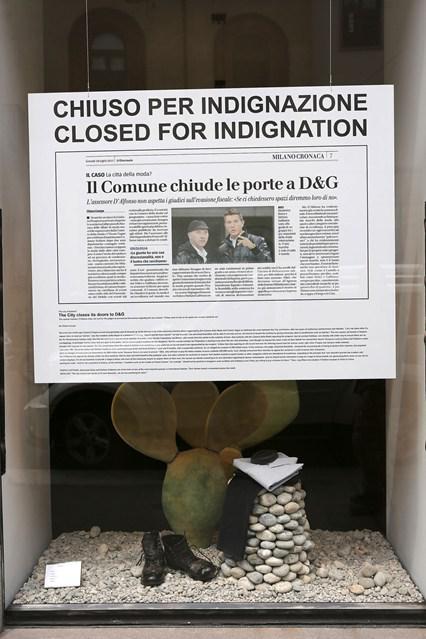Domenico Dolce was born in 1958 near Palermo, Sicily and Stefano Gabbana four years later in Milan. Dolce studied fashion design and worked at his family’s small clothing factory, while Gabbana was a graphic designer. They met each other at an atelier in Milan, where they were both working as assistants. Shortly after they became a couple and began freelance designing together in 1982. It was Sicily that brought the two together; as Dolce’s birthplace and Gabbana’s childhood holiday destination it has provided inspiration for their creative aesthetic ever since. Although they ceased being a couple in 2005 they carried on the business as friends.
Dolce and Gabbana have consistently denied the charges. “The charges were simply a paradox. The two designers were charged with not having paid taxes for an amount of money which was double of what they had actually earned,” claimed the designers. A couples days later, their accountant, Luciano Patelli also made a statement defending himself against any wrong-doing, “our duty is to determine the borders for actions within the law and I am convinced that this was always top priority, as this is my usual method, transparent and with everything in writing, ”Patelli said. “I feel that the words of the prosecutor were deeply unjust as I was defined an instigator to the crime, but this is not so. The necessity to save on tax payments after the restructuring of the company was outlined to me from the beginning, and it's natural and normal.”


































